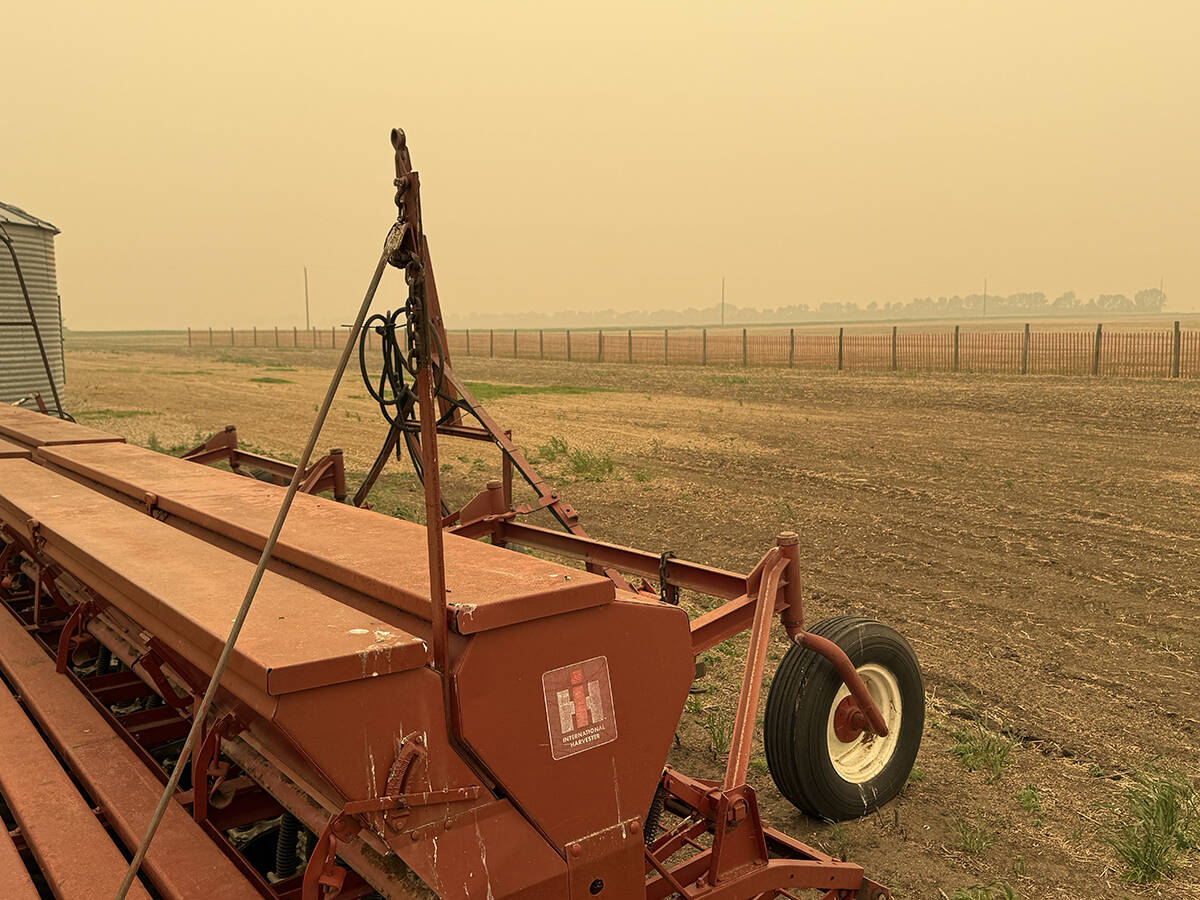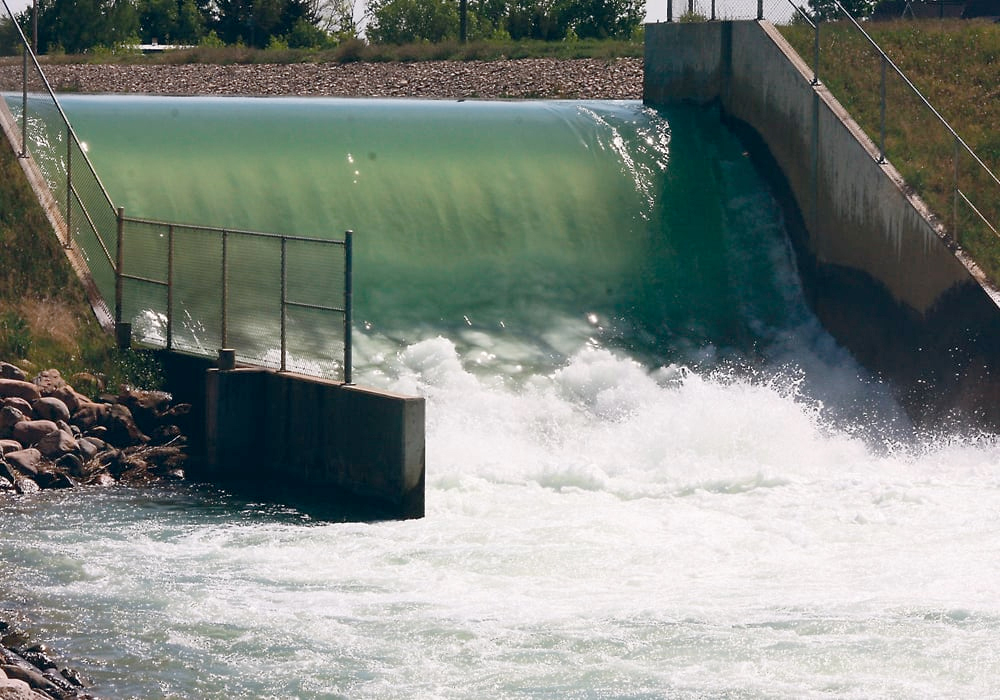Agreement between province and First Nation restores access to water, but questions raised about the lack of details
Water is flowing again down the canals of the Lethbridge Northern Irrigation District (LNID) after an agreement last month made between the Alberta government and Piikani Nation to solve a dispute that cut off access to the headworks.
The cause of the dispute remains unknown, but it resulted in the inability of LNID to access the Oldman River diversion headworks located on the Piikani Nation in mid-April.
Information about the dispute and the agreement, which is being billed as part of reconciliation efforts, is not being released to either Albertans or Piikani Nation members.
Read Also

Wildfires have unexpected upside this year
One farmer feels smoke from nearby wildfires shrouded the July skies and protected his crop from the sun’s burning rays, resulting in more seeds per pod and more pods per plant.
“I am pleased to report that an agreement has been reached between the Piikani Nation and the Government of Alberta regarding the Oldman River project,” read an April 26 statement from Chief Stan Grier. “While the terms will not be disclosed, Piikani Council is satisfied with the agreement and want to express appreciation for the efforts put forth in a meeting today.”
Requests to both Alberta’s ministries of Environment and Indigenous Relations for a copy of the agreement went unheeded.
However, Alberta’s Environment Ministry released a summary of the agreement.
“Alberta has established a bilateral table with Piikani Nation to address environmental, economic, and cultural impacts of concern to Piikani Nation. We are committed to the table in partnership with Piikani Nation on these matters and on ensuring long-term prosperity for the Nation and the province,” read the ministry’s statement. “We want to thank Chief Grier and council for their hard work in this process and look forward to advancing our partnership. Piikani Nation has agreed to honour its existing commitments to water access for the irrigation district.”
Those commitments are contained in a 1981 agreement between the Nation and Alberta government, which quelled disputes in the lead up to construction of the controversial Oldman Dam. The agreement, in part, provided a cash settlement and a promise of technical support for infrastructure improvements for the Piikani Nation in exchange for access to the LNID headworks.
However, disputes continued during construction of the Oldman Dam involving numerous community groups as well as the Piikani through the 1980s and 1990s.
As part of a settlement agreement to put an end to claims tied to the dam project between the Piikani, federal and provincial governments, the Nation received a $64 million settlement, a promise for the establishment of an Alberta-Piikani committee on economic development initiatives as well as other considerations.
But according to a March 2012 presentation by former Piikani chief Gayle Strikes With a Gun to an Assembly of First Nations conference on water rights, the Nation had yet to access funding for the economic development portion of the 2002 agreement.
Strikes With a Gun also stated infrastructure development agreed to in 2002 wasn’t being built, that the agreement was fraught with legal issues and that the recreational use of the Oldman River was non-existent with the waterbody becoming little more than a canal.
Strikes With a Gun was removed as chief in December 2013 by the band council.
As part of the 2002 settlement, however, the Piikani Investment Corp. (PIC) was formed — an organization that subsequently has been embroiled in a number of controversial issues, legal battles and allegations.
Issues arising following the formation of PIC included attempts by the band council to terminate the board of directors as well as issues surrounding management of the funds that flowed from the 2002 settlement, according to Court of Queen’s Bench documents.
For Fort Macleod, Alta., irrigation farmer Stephen Vandervalk, the lack of transparency of the latest agreement between the First Nation and Alberta government and the history of the dispute gives him no confidence that problems won’t persist.
“There are no details. So, we don’t know what the grievances were, we don’t know anything,” said Vandervalk, who farms dryland and irrigated acres through LNID.
He questioned the legitimacy of the agreement between the Piikani and Alberta government.
“There should be no secrets,” he said. “If somebody had broken the agreement on the environment (ministry) side or if this is just something the Piikani wanted to strong arm something out of them.”
Complicating matters further is a leak in the LNID canal system, which Vandervalk said could prove catastrophic. He believes repair work was hampered over the winter due to the dispute between Piikani and the government.
He said it’s time for the government to move the entire headworks off Piikani land.
“This isn’t blocking a road. This isn’t an inconvenience. It’s life and death,” Vandervalk said of the situation, which cut off water supplies to bone-dry farms and full feedlots. “What’s stopping them from doing this again next year?”
Vandervalk also highlighted the governance issues within the Piikani with two band councils claiming to represent the Nation.
In one of the few public remarks made by Alberta Environment Minister Jason Nixon, he told the provincial legislature that this year’s issue stems from the lack of engagement from previous provincial governments with the Piikani.
“The Piikani have been asking for multiple governments to be able to have a bilateral process to address environmental, economic, and cultural concerns when it comes to the overall operation of the Oldman Dam,” said Nixon during question period on April 28.
















